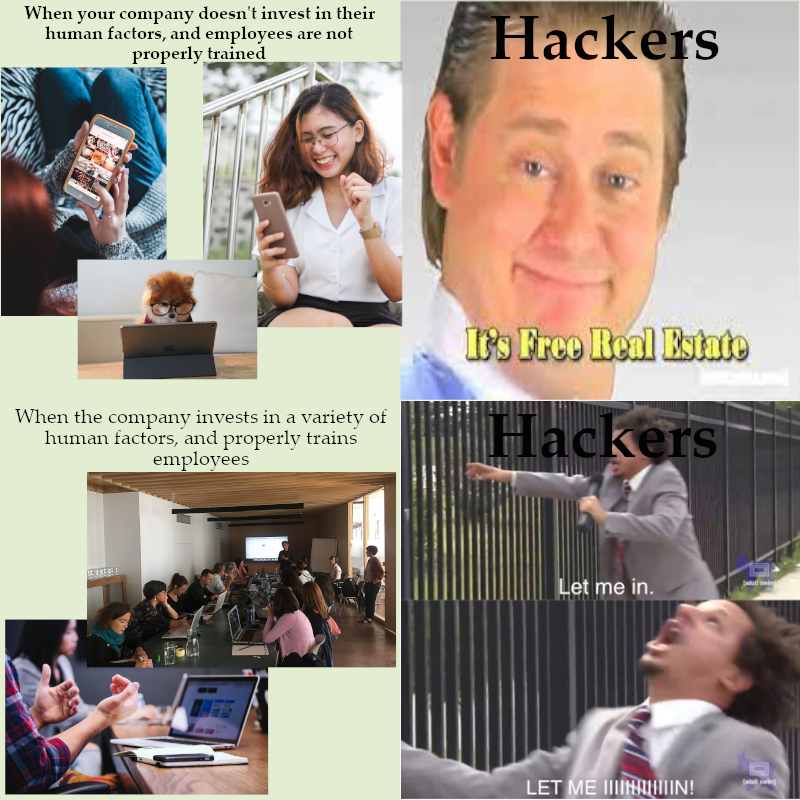•Review the following ten photos through a cybersecurity human systems integration framework. Create a meme explaining what is going on in the individual’s or individuals’ mind(s).
•https://unsplash.com/photos/mfB1B1s4sMc
•https://unsplash.com/photos/gySMaocSdqs
•https://unsplash.com/photos/ICTKcvnXx_8
•https://unsplash.com/photos/Z3ownETsdNQ
•https://unsplash.com/photos/5QgIuuBxKwM
•https://unsplash.com/photos/R6dSBkz32B8
•https://unsplash.com/photos/BXiLSwwvqrY
•https://commons.wikimedia.org/wiki/File:Computer_user_icon.svg
•https://commons.wikimedia.org/wiki/File:Summer_school_GLAM_giorno_1_1.jpg
•https://commons.wikimedia.org/wiki/File:CellPhone_(16491636068).jpg
•Explain how your memes relate to Human Systems Integration.

This might be the worst meme I’ve ever made, but it’s a meme!
Basically, if you don’t invest resources, time, and education into your human factors, you may end up with a company full of employees who take shortcuts, are very lax when it comes to cybersecurity, and an over-saturation of knowledge in a single avenue of information. Hackers who utilize social engineering, or do in-depth recon of your enterprise can use this against you.
If you diversity your human factors and invest in them, you have a font of knowledge to pull from and continue to develop overtime. This makes them less susceptible to cyber attacks overtime.